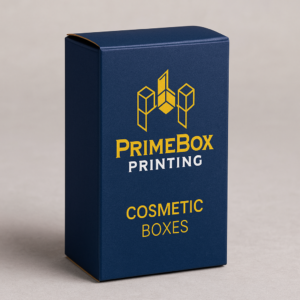A Beginner’s Guide to Starting a Weight Loss Program
Embarking on a weight loss journey can feel overwhelming, especially with the flood of advice available online. However, the key to success is to create a sustainable and realistic plan that aligns with your lifestyle, goals, and health needs. Whether you’re looking to improve your fitness, boost your energy, or simply feel better in your body, this guide will walk you through the essentials of starting a weight loss program — the smart and healthy way.
Understanding the Basics of a Weight Loss Program
A weight loss program is a structured approach to shedding excess body weight, usually involving a combination of diet, exercise, and behavioral changes. It’s more than just a temporary fix — it’s about cultivating lifelong habits that promote better health and well-being.
Before diving into any program, it’s important to understand that weight loss doesn’t happen overnight. It requires consistency, patience, and commitment. A good program will include achievable milestones, a clear plan, and flexibility to adapt as you progress.
Step 1: Set Realistic Goals
The first step in any successful weight loss program is setting clear, realistic goals. Aim for specific, measurable, and time-bound targets. Instead of saying, “I want to lose weight,” try, “I want to lose 10 pounds in the next three months.”
Focus on health-oriented outcomes like:
- Reducing body fat percentage
- Lowering blood pressure or cholesterol
- Improving mobility or endurance
Setting smaller, attainable goals helps maintain motivation and reduces the likelihood of burnout.
Step 2: Assess Your Current Lifestyle
Take a moment to evaluate your current eating habits, physical activity level, sleep patterns, and stress management. Keeping a food and activity journal for a week can provide valuable insights into areas that need improvement.
A professional weight loss consultant or registered dietitian can help analyze this data and develop a personalized plan that works for you.
Step 3: Choose a Suitable Diet Plan
There’s no one-size-fits-all diet. A successful weight loss program includes a dietary approach that you can stick to in the long run. Popular options include:
- Mediterranean diet
- Low-carb or keto diet
- Intermittent fasting
- Plant-based diet
The key is to focus on whole, unprocessed foods such as vegetables, lean proteins, whole grains, and healthy fats. Avoid fad diets that promise rapid results — they’re often unsustainable and can be harmful.
A professional weight loss provider will ensure your dietary plan is nutritionally balanced and tailored to your needs.
Step 4: Incorporate Physical Activity
Exercise is a crucial component of any weight loss program. It helps you burn calories, improves mood, boosts metabolism, and preserves muscle mass.
Start slow if you’re new to exercise:
- Begin with walking, swimming, or cycling
- Include both cardio and strength training
- Aim for at least 150 minutes of moderate activity per week
As your fitness improves, you can gradually increase intensity and variety. Consider working with a fitness trainer to avoid injury and stay motivated.
Step 5: Monitor Your Progress
Tracking your progress can help you stay accountable and see how far you’ve come. Use a journal, app, or fitness tracker to monitor:
- Weight and body measurements
- Physical activity
- Food intake
- Mood and energy levels
Keep in mind, the scale isn’t the only measure of success. Changes in clothing fit, energy levels, and overall health are just as important.
Step 6: Seek Professional Guidance
For many beginners, working with a professional weight loss expert can make all the difference. These professionals provide:
- Personalized meal plans
- Medical evaluations (if needed)
- Ongoing support and accountability
- Help navigating challenges like plateaus or emotional eating
A professional weight loss service ensures your program is safe, evidence-based, and designed to meet your individual health needs.
Step 7: Address Emotional and Behavioral Factors
Weight loss is not just physical — it’s also emotional. Stress, boredom, and emotional eating can derail even the most structured plan. Consider:
- Practicing mindfulness or meditation
- Seeking support from friends or support groups
- Consulting a therapist or counselor
Developing a healthy relationship with food and your body is essential for long-term success.
Benefits of a Professional Weight Loss Approach
Engaging in a professional weight loss program provides several advantages over DIY methods:
- Medical supervision ensures safety for individuals with chronic conditions
- Accountability and motivation from coaches or support groups
- Access to scientifically backed strategies
- Customized plans instead of generic recommendations
With expert support, you are more likely to achieve your goals and maintain them in the long term.
Common Mistakes to Avoid
As a beginner, be aware of common pitfalls:
- Setting unrealistic goals
- Skipping meals or extreme calorie restriction
- Over-relying on supplements
- Ignoring mental health and stress management
- Comparing yourself to others
Remember, your journey is unique — focus on progress, not perfection.
Conclusion
Starting a weight loss program can be life-changing when approached with the right mindset and strategy. It’s about more than just losing weight — it’s about gaining confidence, vitality, and a better quality of life. With realistic goals, consistent habits, and professional weight loss support, you can take control of your health and thrive.
FAQs
❓How do I choose the right weight loss program for me?
Choose a program that fits your lifestyle, dietary preferences, and health conditions. Consulting a professional weight loss expert can help you make an informed decision.
❓How quickly will I see results from a weight loss program?
Most people can expect to lose 1–2 pounds per week with consistent effort. Results vary depending on your starting point and the plan you follow.
❓Do I need to exercise every day to lose weight?
No, but regular activity (at least 3–5 times a week) greatly supports weight loss and overall health. Start with manageable sessions and build up.
❓Is professional weight loss help worth it?
Yes. Professional weight loss services provide personalized plans, expert guidance, and accountability, improving your chances of long-term success.
❓Can I lose weight without dieting?
Weight loss typically requires some changes in eating habits. However, focusing on balanced nutrition rather than restrictive dieting is key to sustainable results.
❓What if I hit a plateau?
Plateaus are normal. Reassess your food intake, activity level, and stress. A professional can help you adjust your plan and overcome obstacles.













